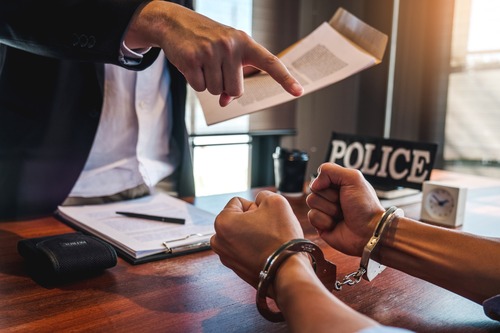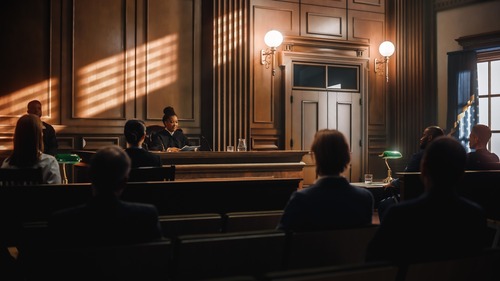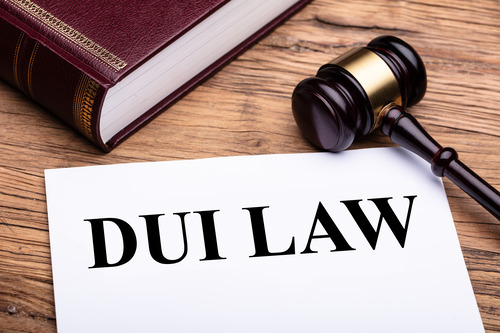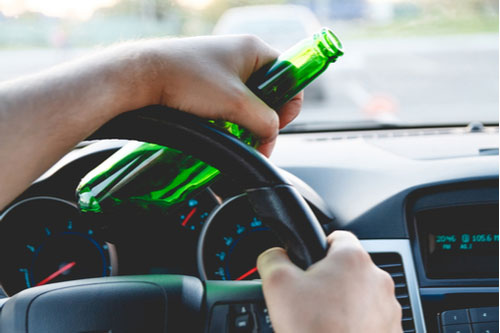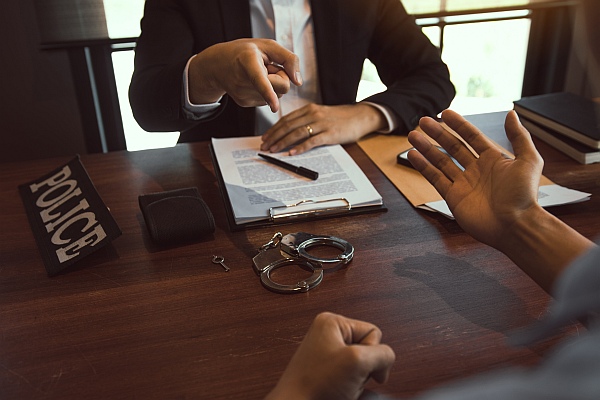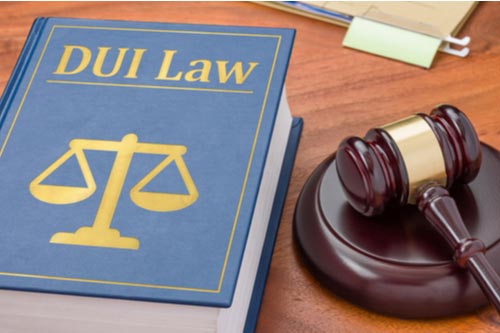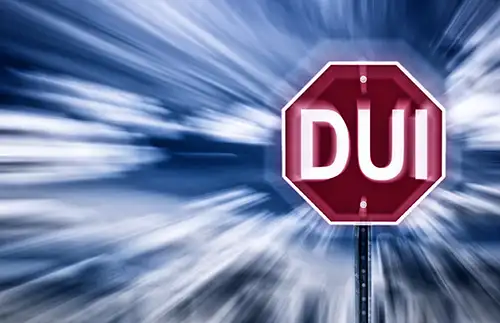At Rathburn Law Office P.C., P.C., we focus on defending individuals facing DUI charges in Indiana. With over 25 years of experience, our team is led by Charles Rathburn, a nationally recognized DUI attorney and certified phlebotomist. We use our knowledge of DUI law, police procedures, and chemical testing to build strong defenses for our clients. We are committed to protecting your rights and working toward the best possible result in every case.
A first DUI court appearance in Indiana can be stressful and confusing, especially if you have never dealt with the legal system before. After a DUI arrest, the court process begins quickly, and each step has serious consequences. Understanding what to expect at your initial hearing, how the DUI court process works, and how a defense strategy is built can make a real difference in the outcome of your case. If you are facing drunk driving charges, taking early action with the help of an experienced DUI attorney can protect your rights and help you avoid further legal trouble.
In this blog, you will learn what to expect during your first DUI court appearance in Indiana, how the court process unfolds, and why speaking with an experienced Indianapolis DUI defense lawyer is important to protect your rights and build a strong defense.
What Triggers a DUI Court Appearance in Indiana?
A DUI court appearance in Indiana is set in motion by a series of legal and procedural steps that begin with a traffic stop and may lead to formal charges. Understanding each step helps you prepare for what lies ahead.
Traffic Stop by a Law Enforcement Officer
A DUI case often starts with a traffic stop. A police officer may pull over a driver for erratic driving, a traffic violation, or based on a tip. The officer must have reasonable suspicion to initiate the stop. If the officer observes signs of impaired driving, they may proceed with further checks.
Field Sobriety Tests and Breathalyzer
After the stop, the officer may ask the driver to perform field sobriety tests. These are physical and cognitive tests meant to detect signs of impairment. If the officer suspects alcohol use, a breathalyzer test may follow to measure blood alcohol concentration (BAC). A BAC of 0.08 or higher typically results in arrest under Indiana Code § 9-30-5-1.
DUI Arrest and Booking
If the officer believes there is probable cause, they will arrest the driver for DUI. The suspect is taken to a police station for booking, where personal information is recorded and chemical tests may be administered. These tests can include blood or urine analysis to check for alcohol or controlled substances.
Filing of DUI Charges
After arrest, the prosecution reviews the case. If they decide there is sufficient evidence, formal DUI charges are filed. These may include misdemeanor DUI or felony charges if aggravating factors are present, such as serious bodily injury or prior convictions. This step triggers the requirement for a DUI court appearance.
Notice of Initial Court Appearance
Once charges are filed, the court schedules an initial hearing. This is your first DUI court appearance, also called an arraignment. The court informs the defendant of the charges, outlines potential penalties, and explains legal rights. Missing this hearing can lead to a bench warrant and further legal trouble.
Understanding Your Initial Hearing (Arraignment)
The initial hearing is the first court appearance after a DUI arrest in Indiana. It sets the stage for how the DUI court process will proceed.
Purpose of the Initial Hearing
At the initial hearing, the judge reads the DUI charges and explains the possible penalties. The court ensures the defendant understands their legal rights, including the right to legal representation by a defense attorney. If the person does not already have a DUI lawyer, the court may appoint one if they qualify.
Entering a Plea
The defendant must enter a plea during the arraignment. The options are guilty, not guilty, or no contest. A guilty plea can lead to immediate sentencing, while a not guilty plea moves the case into the pretrial phase. The choice made here affects the entire DUI court process, so it should be made with advice from an experienced DUI attorney.
Release Conditions and Bail
The judge decides whether to release the defendant or set bail. Many first-time offenders are released on their own recognizance. In some cases, the court may impose conditions such as alcohol monitoring, a probation officer check-in, or use of an ignition interlock device. If bail is required, the amount depends on the DUI charges and any aggravating factors, such as bodily injury.
Consequences of Missing the Hearing
Failing to appear in court can lead to serious legal trouble. The court may issue a bench warrant for arrest. This can result in additional penalties and make it harder to fight the DUI charges. Attending the initial hearing on time is critical to avoid further legal issues.
What Happens After the Initial Hearing?
After the initial hearing in a DUI case, the court moves into the pretrial phase. This stage involves gathering evidence, filing motions, and preparing a defense strategy.
The Pretrial Conference
The court schedules a pretrial conference after the first court appearance. This is a meeting between the defense attorney, the prosecutor, and the judge. They discuss the status of the case, possible plea agreements, and whether the case is ready for trial. If both sides agree, the court may set a trial date or resolve the case without one.
Discovery Process
During discovery, both sides share information. The prosecution provides evidence such as police reports, witness statements, and results from field sobriety tests and chemical tests. The defense attorney reviews these materials to find weaknesses in the prosecution’s case. Discovery allows both sides to assess whether there is sufficient evidence to proceed.
Filing Motions
Your DUI lawyer may file motions during this stage. Common motions include requests to suppress evidence, challenge the validity of field sobriety tests, or dismiss the case due to procedural errors. These motions can limit the prosecution’s evidence or lead to a case dismissal if the court finds violations of your rights.
Evaluating Plea Agreements
If the evidence is strong, the prosecutor may offer a plea agreement. This allows the defendant to plead guilty to a lesser charge or receive a reduced sentence. A defense attorney reviews the offer and advises whether to accept or move forward to trial. Accepting a plea can avoid further legal trouble, but it still results in a DUI conviction.
Preparing for Trial
If no agreement is reached, the case proceeds to trial. Your attorney begins preparing a defense strategy. This may include interviewing witnesses, reviewing the prosecution’s evidence, and planning how to challenge the arrest or test results. Preparation is key to building a strong defense in DUI cases.
Building Your DUI Defense Strategy
A strong DUI defense strategy can affect the outcome of your case. Your defense attorney will review the facts, challenge the evidence, and look for any legal issues that can help reduce or dismiss the charges.
Reviewing the Traffic Stop
The first step in building a defense is examining why the police officer pulled you over. The officer must have had probable cause to initiate the stop. If the stop was unlawful, your attorney may file a motion to suppress evidence collected after the stop. This includes the results of field sobriety tests, breathalyzer tests, and blood tests.
Challenging Field Sobriety and Chemical Tests
Your defense attorney will review how field sobriety tests were performed and whether they were done correctly. If the officer made errors, the test results may be unreliable. Chemical tests like breath or blood tests can also be challenged if equipment was not calibrated or if the testing process was flawed.
Examining the Prosecution’s Evidence
Your attorney will analyze the prosecution’s case, including police reports, video footage, and witness statements. The goal is to find gaps or inconsistencies. If the prosecution cannot present sufficient evidence, the court may reduce the charges or dismiss the case.
Considering Medical or Legal Explanations
In some DUI cases, a valid prescription or a medical condition may explain the behavior that led to the arrest. An experienced attorney will investigate these factors. If a controlled substance was legally prescribed, this can be used as part of the defense.
Weighing a Plea Agreement
If the evidence against you is strong, your lawyer may recommend considering a plea agreement. This can lead to reduced charges and lower penalties. It may help you avoid jail time or other serious consequences, such as losing your driver’s license or dealing with a probation officer.
Consult With an Experienced Indianapolis DUI Defense Attorney ASAP!
If you are facing DUI charges in Indiana, taking immediate action is critical. The decisions you make now can affect your driving privileges, your record, and your future. Our team at Rathburn Law Office P.C., P.C. has decades of experience handling DUI cases across Indianapolis and throughout Indiana. We understand how the courts operate, what evidence to challenge, and how to build a strong defense.
Contact us at 800-800-8000 for a free case consultation today!
